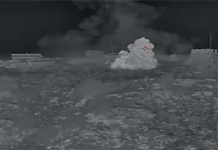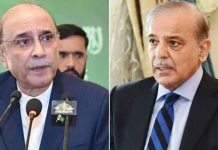DNA
The Muzaffarabad Public Action Committees has called for a long march to Azad Jammu and Kashmir’s (AJK) capital Muzaffarabad on May 11 (Saturday).
In a bid to stop the long march, the government has called the Punjab Constabulary, Frontier Constabulary along with the Azad Kashmir Police.
But why are people protesting and marching towards Muzaffarabad and what is the AJK government’s stance on this matter?
The AJK High Court, in a bid to resolve the issues surrounding the construction of Neelum Jhelum Hydropower Project and other hydroelectricity projects, had ordered the AJK government to develop an agreement with Water & Power Development Authority (Wapda) and to get the matter approved under the interim constitution of AJK.
However, the government failed to implement the orders.
This case was still undergoing but on May 8, 2023, the people in Rawalakot demanded subsidy on wheat flour. And on August 18, Muzaffarabad and Mirpur also became part of the protests due to inflated power bills.
The alliance between the cities later took the form of a movement across AJK, however, none of the mainstream political parties were a part of it.
Hence, all the political and regional organisations, which were not a part of the assembly, got a platform to speak for the people’s rights. Moreover, the movement received strong support from the leadership of business organisations.
Apart from the issue of hydroelectricity projects, the movement also raised concerns about several other issues including supply of hydropower generated in AJK at cost of production, subsidy on flour and reducing the privileges of judges, elite civil bureaucracy, members of assembly, former prime ministers and presidents.
As a first step, the public action committee appealed to the people not to pay the electricity bills and as a result, 80% of the people did not pay the electricity bills for the last 11 months.
Following this, people in Rawalakot started burning their bills which also spread across rest of AJK. The government then carried out an operation and removed the sit-ins and arrested the businessmen and filed terrorism charges against them, triggering protests across AJK.
The government then set up a committee to negotiate with action committee and after multiple sessions, the government accepted their demands and agreed to take up matters with the Government of Pakistan on the issue of electricity.
A notification was issued to execute the demands, however, they could not be implemented and the matter could not be presented for legislation in the assembly.
Following this, the PAC announced a strike on February 5. However, it later withdrew the call in view of the national interest. Despite this, the government was neither able to reach an agreement on the hydropower projects nor it could resolve the power tariff issue.
The PAC has been protesting for the implementation of the court order and also filed a contempt of court petition against the government. It also called for a long march on May 11.

















